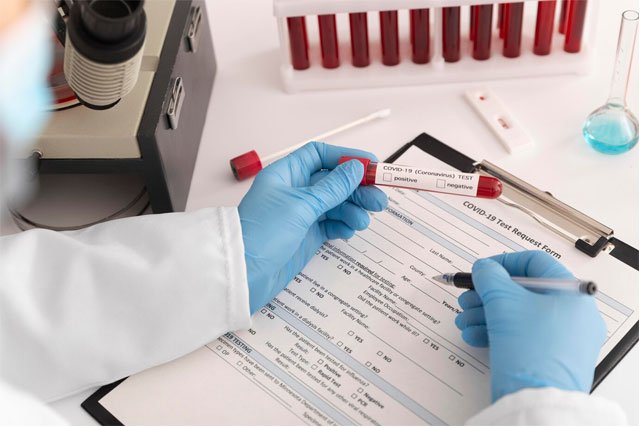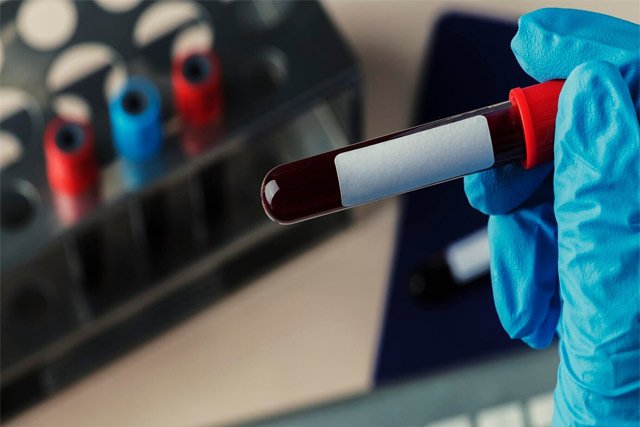Are you intrigued by blood drug tests and wish to delve deeper into their intricacies? Whether you’re facing one soon or simply curious about how it works, this comprehensive guide will provide you with all the essential information you need. Let’s journey through blood drug testing, exploring its purpose, types, procedures, and more.
1. Introduction to Blood Drug Tests

Blood drug tests, also called blood screens, are diagnostic procedures designed to detect the presence of various substances or metabolites in an individual’s bloodstream. Unlike other drug tests, such as urine or saliva tests, which are more prone to manipulation, blood tests offer high accuracy and reliability. They are often employed in critical situations, such as medical emergencies or forensic investigations, where precise identification of substances is crucial.
2. Why Blood Tests Matter

Blood drug tests play a crucial role in various aspects of our lives, serving several significant purposes:
- Accurate Detection: Consider blood drug tests as meticulous detectives—they excel at pinpointing illegal drugs and specific prescription medications with remarkable precision. This accuracy ensures that no substance goes undetected, helping individuals and organizations address substance use effectively.
- Medical Applications: Sometimes, traditional urine or saliva tests just won’t cut it, especially for individuals with certain medical conditions. Blood tests are reliable alternatives, providing valuable insights into a patient’s medication compliance or substance usage patterns.
- Safety in the Workplace: Picture a construction site or a factory floor—environments where alertness and focus are paramount for safety. Employers understand this critical need and implement drug testing programs to maintain a safe working environment. By identifying and addressing substance use among employees, these programs mitigate risks and promote workplace safety for everyone involved.
3. Understanding Different Types of Blood Drug Tests

While there is typically one standard procedure for conducting a blood drug test, various tests may focus on detecting specific substances or classes of drugs. Some of the substances commonly targeted in blood drug tests include:
4. The Importance of Substance Detection

Each substance targeted in a blood drug test poses unique risks and implications. Understanding what substances are being tested for can provide valuable insight into the purpose and potential outcomes of the test.
4.1. Who Requires a Blood Drug Test?
The need for blood drug testing arises in various contexts and is mandated by different entities for distinct reasons:
4.1.1 Employers
- Pre-Employment Screening: To ensure prospective employees meet job requirements and maintain a drug-free workplace.
- Post-Incident Investigations: Following workplace accidents or incidents to determine if substance use contributed.
- Random Testing: Some employers implement randomized drug testing programs to deter substance abuse among employees.
4.1.2 Medical Practitioners
- Medication Compliance: To monitor patients’ medication adherence and detect potential substance abuse.
- Diagnostic Purposes: In medical emergencies or cases where urine or saliva testing is not feasible.
4.1.3 Law Enforcement and Legal Authorities
- Forensic Investigations: In criminal investigations or cases involving drug-related offenses.
- DUI Cases: To determine the presence of drugs or alcohol in individuals suspected of driving under the influence.
5. The Procedure: How Blood Drug Tests Are Conducted

5.1. Step-by-Step Guide
- Sample Collection: A trained professional, typically a phlebotomist, collects a blood sample from a vein in the individual’s arm using a sterile needle and syringe.
- Sample Processing: The collected blood sample is processed to isolate the plasma or serum containing the substances being tested.
- Analysis: Sophisticated laboratory equipment, such as gas chromatography-mass spectrometry (GC-MS) or liquid chromatography-mass spectrometry (LC-MS), is used to analyze the sample for drugs or their metabolites.
- Interpretation: Trained technicians interpret the analysis results, distinguishing between positive (presence of drugs) and negative (no drugs detected) outcomes.
6. Blood Test Results: What Do They Mean?

Understanding the interpretation of blood test results is crucial for individuals undergoing drug testing, as it provides insight into their substance use status and potential implications:
6.1. Negative Results
Imagine a sigh of relief—this is what a negative result signifies. It means that no drugs or alcohol were detected in the individual’s system. This outcome is not just a passing grade; it’s a testament to their commitment to abiding by drug-free policies or maintaining sobriety. It’s a green light for continued trust and confidence in their actions.
6.2. Positive Results
On the flip side, a positive result delivers a different message. It’s like a red flag waving, indicating the presence of drugs or alcohol in the individual’s system, signaling recent use. Positive results prompt further scrutiny and consideration, as they may impact employment opportunities, medical treatment plans, or even personal relationships. However, they also present an opportunity for support and intervention, guiding individuals toward necessary resources and assistance.
6.3. False Positives
Despite the reliability of blood drug tests, there’s a slight chance of encountering a false positive. It’s like a glitch in an otherwise flawless system. Factors like environmental exposure or certain medications could lead to misleading results. Fortunately, stringent cutoff levels are in place to minimize this risk, ensuring the integrity and accuracy of the testing process. In the rare instance of a false positive, thorough investigation and understanding prevail, ensuring fair treatment and resolution for all parties involved.
Conclusion
Blood drug tests are vital in various settings, from workplace safety to medical diagnostics and forensic investigations. Individuals and organizations can navigate the process with confidence and clarity by understanding their purpose, types, procedures, and potential outcomes. Whether facing a blood drug test or simply seeking to broaden your knowledge, this comprehensive guide equips you with the essential information needed to understand and appreciate the intricacies of blood drug testing, including considerations such as how long to fast before a blood drug test.
FAQs
Blood drug tests are generally considered more accurate due to directly detecting substances in the bloodstream. Urine and saliva tests may be susceptible to manipulation or contamination.
Blood drug tests can precisely detect ethanol levels, making them suitable for assessing alcohol consumption. This capability is handy in forensic investigations or DUI cases.
The detection window for drugs in the bloodstream varies depending on factors such as the type of drug, frequency of use, and individual metabolism. Generally, drugs can be detected for a few hours to several days after use.
While individuals can refuse drug testing, refusal may have consequences depending on the context, such as employment termination or legal implications. It’s essential to understand the impact of refusal and consider the potential consequences carefully.




